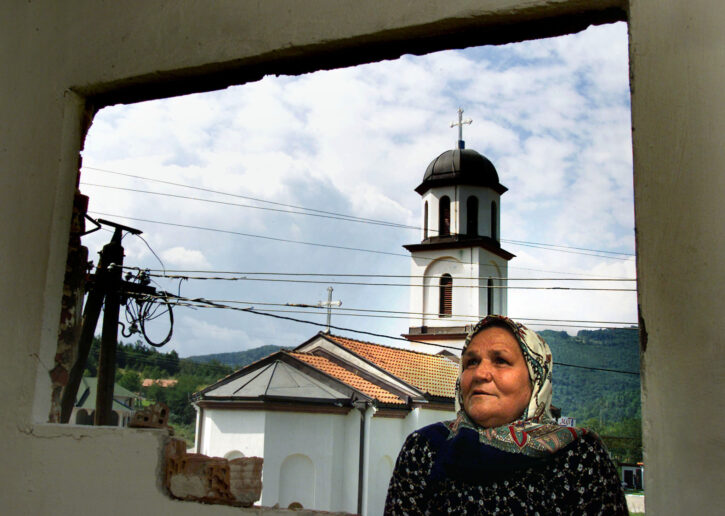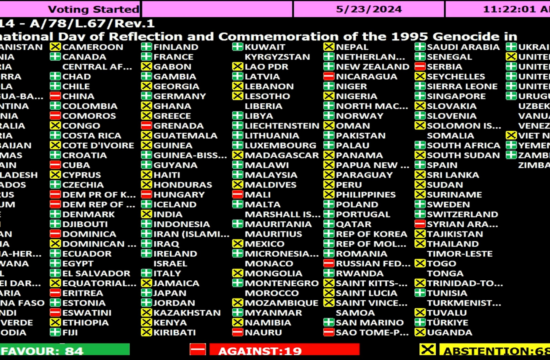
Strasbourg-based European Court of Human Rights (ECHR) ruled on Tuesday in favour of Fata Orlovic in the case against the state of Bosnia and Herzegovina, concerning a church built by the Serbian Orthodox Parish on Orlovic's land after the family fled their home during the 1992-95 Bosnian war.
A chamber consisting of seven judges decided that Bosnian authorities failed to comply with the final and binding decisions of 1999 and 2001 ordering full repossession of the land by the applicants, “without any justification on the part of the Government for such inaction” and thus “seriously frustrated their property rights.”
It also held, by six votes to one, under Article 46 (binding force and implementation) that the respondent state “had to ensure enforcement of the two decisions in the applicants’ favour, including in particular the removal of the church from the applicants’ land, at the latest within three months of this judgment becoming final.”
Judge Jon Fridrik Kjølbro of Denmark expressed a partly dissenting opinion, which is annexed to the judgement.
The case against the state of Bosnia and Herzegovina was launched by a family of 14 Bosnian nationals, including the first applicant Fata Orlovic.
They were forced to leave their homes in the eastern village Konjevic Polje during the 1993-95 war, built on the land belonging to the first applicant's husband and his brother. The property included several individual and agricultural buildings, fields and meadows.
In 1998, the Drinjaca Serbian Orthodox Parish built a church on the land, following expropriation proceedings in favour of the parish, without the applicants ever being informed about those proceedings.
Following the provisions of the General Framework Agreement for Peace in Bosnia and Herzegovina, which ended the Bosnian war, and its Annex 7 which guarantees a free return of refugees, Bosnia's Serb-dominated region, Republika Srpska, where the land is located, enacted the Restitution of Property Act in 1998.
The applicants brought the restitution proceedings for their property in line with the Act and were granted full restitution in 1999, followed by the return of their property except for a plot where the church was built.
The owners sought full repossession in the following years, but without success.
In March 2018, they lodged an appeal with the ECHR, relying on the provisions of the European Convention on Human Rights, guaranteeing the protection of property and the right to a fair trial.
After reviewing the facts related to the facts, the ECHR's chamber concluded that the applicants were still being prevented from full repossession of their property 17 years after the ratification of the Convention and its protocols by Bosnia and Herzegovina.
“The Government had not given any justification for the authorities’ inaction. The Court considered that such a long delay clearly amounted to a refusal to enforce the decisions, which had left the applicants in a state of uncertainty,” said the court, noting that the applicants “had suffered a serious frustration of their property rights and had been made to bear a disproportionate and excessive burden.”
The Court held, unanimously, that Bosnia and Herzegovina was to pay 5,000 euros (EUR) to the first applicant and EUR 2,000 to each of the remaining applicants in respect of pecuniary damage.




